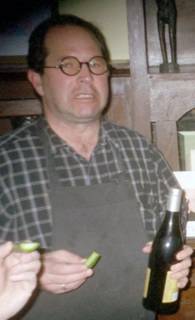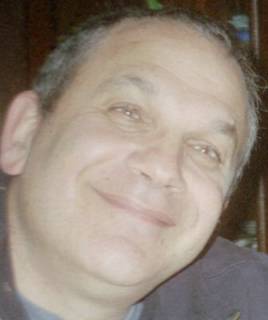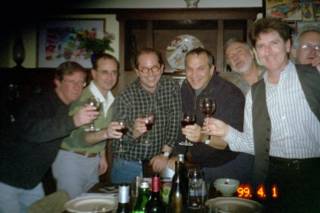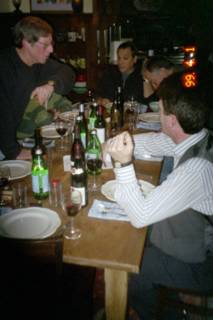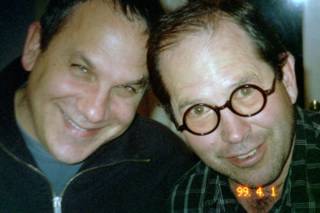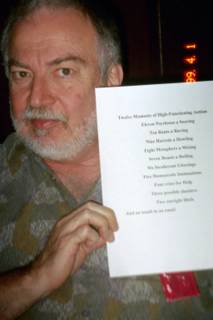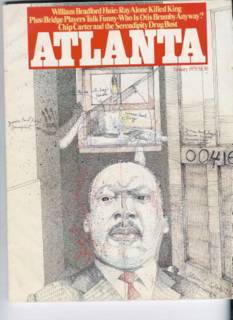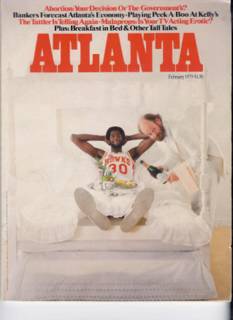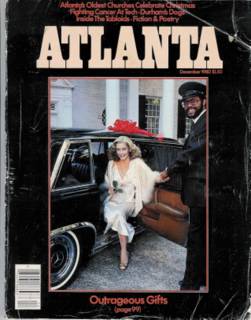Thursday, November 30, 2006
Tuesday, November 28, 2006
Whose the Fool?
Click on this link and take the poll: Who Will Embarrass Us During Our Next Long Lunch?
Wednesday, August 24, 2005
Looking for Warren Goodbar
By: James Foster
I stared at the cup of partially-clotted cow’s blood steaming in the brisk morning air, and asked myself aloud, “What am I doing here?” I had just spent the night in a dung hut sleeping on a bed of sticks with tick-ridden baby goats, brushing cockroaches away from my mouth and trying to breathe despite the open fire that was left burning inside our unventilated quarters throughout the evening. Now I wanted to drop that cup of blood in the dirt, smile, and unabashedly say, “Not a chance in hell.” But this isn’t America, this is Africa, and one doesn’t get offered a local delicacy by Masai warriors and simply decline; anyway, by this point villagers had gathered to watch the ceremonial quaffing and I’d never been one to disappoint.
The still-steaming sludge slid down my throat and my eyes began to water. I tried not to cringe, but the immediate aftertaste reminded me of being punched in the mouth and splitting a lip. The men offered me another glass, this time mixed with un-pasteurized milk, and I drank it down with the same false enthusiasm a freshman downs a double-shot of gin at a frat party. I waited for a moment to make sure I wasn’t going to throw up, then smiled with my pearly whites gloriously stained red. A strange rush of adrenaline surged through my capillaries; I felt like fiercely beating my chest and killing a lion with my bare hands. As my wild eyes looked out across the sprawling Kenya savannah, I asked myself again, “What am I doing here?” Surprisingly, I remembered my answer had something to do with Warren Hinckle.
I am currently unemployed, a plight which most aspiring writers (if not all) can relate to. But last September, if someone had told me I’d be slamming down cow’s blood, fending off Nairobi street kids high on glue, and cautiously dozing off to an ominous hyena lullaby in the wilds of Africa, the word ‘unfathomable’ would have immediately come to mind.
Entering into my last year of school, I still didn’t know what career I wanted to pursue. I loved writing, but was warned of its instability as a profession. I considered graduate school, or work in some other media sector, but with California’s economy falling flat on its face, I realized landing a decent job was going to require more than wearing my “nice” tie for an interview. I loaded my schedule with writing courses to sharpen my bygone skills, but one class in particular (Magazine Writing) entertained all my attention. It was here my professor, former San Francisco Chronicle journalist Michael Robertson, sensing my youthful naivete and mid-western optimism, challenged me: track down and profile once- renowned journalist Warren Hinckle. The challenge itself was clearly going to be difficult since none of Robertson’s previous students presented with the considerable task had even come close to snaring the dodgy reporter – but I was then 21, cocky, and confident.
Priority one was research; unfortunately, the only bone I was thrown was that he was a heavy drinker. So I read past profiles and interviewed countless foggy acquaintances from the 60’s, all the while trudging through the rivers of alcohol often associated with San Francisco’s ‘newspaper bars.’ What I eventually uncovered was that I was chasing a living legend of the written word, a pioneer of revolutionary journalism, famous for his contribution to the instigation and exposure of our country’s madness during the 1960’s; a man responsible for launching the Catholic quarterly Ramparts, as well as the demented and wildly successful career of Hunter S.Thompson.
What also became clear was that like other artists, Warren Hinckle ‘created’ himself. He wore an eye-patch, often donned a flowing velvet cape, had a Prince Valiant haircut and was rarely seen around town without his basset-hound in close toe. At 21, Hinckle ran for mayor; he befriended San Francisco’s pornography kings, the Mitchell brothers (one of whom shot the other to death incidentally); he kept a Simian monkey named Henry Luce in his office; he racked up bar tabs comparable to buying small countries; former mayor Diane Feinstein despised him so much she dumped a drink over his head. He was ‘the hard-nosed, eccentric, drunk, San Francisco journalist;’ that was who he created and who San Franciscans embraced, because only during a period like the 60’s in San Francisco, when significance often blurred with sketch comedy, could someone so incontrovertibly crazy, end up so recognized.
“This is Warren. I’m out of the office. Leave a message…click.” Repetition is the mother of memorization - I would know since I called the San Francisco Examiner for two weeks straight and heard that message every damn day. I also drank enough whiskey to drown Ireland and burned through a small fortune in cab fare trying to guess which local dive he was going to crash on any given evening – still nothing. After a month of investigative failure, I succumbed to the seedy underbelly of reporting and traded some undisclosed information involving an incident with the SFPD to one of Hinckle’s co-workers, political editor Frank Gallagher, in exchange for the elusive writer’s girlfriend’s unlisted telephone number.
When I finally reached him a week later, he agreed to speak with me on account of my considerable effort, and on the condition I would stop the incessant phone calls to his girlfriend’s house. Several ‘scheduling conflicts’ later, we met at Perry’s, a New York-style restaurant and bar which once held the undisputed title of the place to see and be seen for San Francisco’s players. Appearing out of the rain like some 18th century ghost, he was decked in worn, black-buckled Quaker shoes, vibrant blue stockings pulled up to his knees, weathered Bermuda shorts, a buttoned-down Polo shirt, a fur-collared trench coat, Prince Valiant haircut, and of course his famous eye-patch. Accompanying him was Doctor Donald Dossett (the same doctored rumored to have supplied Hunter Thompson with the cache of drugs he took to cover the desert rally car races referenced in Fear and Loathing in Las Vegas), whose shoulder-length renaissance-style ‘do seemed to compliment Hinckle’s pirate garb all too well. We shook hands and I tried to speak, but my ability to formulate a sentence inconveniently escaped me, as if my saliva had become some venomous toxin paralyzing the words anxiously waiting to slip off the tip of my tongue. Instead, Hinckle boisterously barked, “So you’re the kid who keeps leaving the harassing messages, huh? Well, let’s go in and get a drink. Don’t worry Doc, he’s harmless.”
I followed him in as he waddled up to the bar and immediately began to see the bizarre gravitational pull he possessed - the gravelly, grumbling snarl, the droopy eye, the uncut fingernails, the yellowish hue of his child-sized teeth, the unmistakable booze-breath; it was like meeting a famous actor who never changed out of character despite the director yelling “Cut!” Perry’s patrons were inexplicably drawn to him as well; they wanted his opinion on this, that, and the other - and all he wanted was a drink. But I soon saw why his popularity wasn’t based solely on either his ability to saturate himself with barrels of alcohol, his eclectic fashion sense or his tendencies to infuriate society’s authority figures - his ‘schmoozing’ skills were impeccable. He referred to people as “Darling!” and “Prince;” he kissed cheeks, shook hands, visited tables, complimented staff, and remembered everyone’s name who approached him. When we were finally alone at the bar, he leaned over to me and whispered, “Two things to remember: Never turn down a drink, and never forget a name. You’d be surprised how far that’ll carry you.”
The son of a shipyard worker, Warren Hinckle graduated from Riordan High School (a school for “felons and gangsters” as he put it) in the working-class Sunset District of San Francisco and was given a scholarship to attend the Jesuit University of San Francisco. Hinckle became editor of the school’s newspaper The Foghorn, and had a sixth-sense for finding the story and filling pages. And even when there wasn’t news, he created it (he burned down the school’s security guard shack just to write about it – blaming the crime on some unknown arsonist). To complement the outrageous image he began to develop while at USF, Warren Hinckle created his own rules journalistically and authoritatively, avoiding several attempts of expulsion by threatening to blackmail priests with stories he had uncovered of corruption and inappropriate behavior.
After graduating in the early 1960’s, he wrote for the San Francisco Chronicle, then teamed up with shopping center millionaire Edward Keating to publish a Catholic journal they named Ramparts. But since leftwing publications in the 60’s were bleak accounts published on cheap paper, ignored by all but a sliver of intelligentsia, Ramparts got off to a slow start. It wasn’t long though before L.A. designer Dugald Stermer was brought in to give the journal the much-needed facelift to compliment the crack team of young reporters Hinckle had assembled.
Ramparts gained notoriety by exposing stories of such government malfeasances as the RAND think tank, the unlawful treatment of the Black Panthers, CIA assassinations, the Chicago riots, and segregation in the Catholic Church - they even printed excerpts from Che Guevara’s smuggled diary. The magazine’s impressive list of contributors, which included Martin Luther King Jr., Noam Chomsky, Kurt Vonnegut, and Hunter S. Thompson, also added to its notoriety (it was while on assignment for Hinckle at the Kentucky Derby that Thompson and Ralph Stedman spawned “Gonzo” journalism). Hinckle himself admittedly devolved into a throwback of “old European-style journalism” in which he tossed objectivity out the window and aggressively, if not unscrupulously, sought facts to sponsor his opinions. He got dirt from politicians about dirty politicians, knew every meddler who had a hand in the war, and exposed all our country’s tainted little secrets never meant to be uttered, on sprawling full-color pages.
When I asked him about what Ramparts was, and what it represented, Hinckle boasted, “We went out looking for stories that would fuck up the war, and there was no end to them. In America they pretend that objectivity is supposed to be your thing. We never pretended to be objective – all we said we were gonna do was back up our point of view with facts, and we aggressively went out and sought the facts”. He went on, “I started meeting all these goofy people at this Catholic magazine who were saying, ‘What? What? That’s really going on? Never learned that in school.’ But what you did learn in school was that authority fucks. And there are ways to combat it, and one of those ways is journalistically…”
Hours had passed, but I was oblivious; I sat contently drinking Johnny Walker Red, enjoying the stories of Warren Hinckle’s adventuresome glory days as one of San Francisco’s most-recognized journalists. He told me of his friendship with Hunter S. Thompson and the time his monkey, Henry Luce, after getting into Hunter’s backpack and eating a large quantity of drugs, went on a tear around his office for two straight days. He told me stories about the night of the Mitchell brother’s murder, exposing political sponsors of the Vietnam War, running for mayor, happy hours turned into three-day benders, making and missing deadlines, journalism politics, blackmail, partnerships forged and marriages lost – he told me about his life as a writer.
As the evening wore on, I began to ponder the significance of my own era versus his - the opportunity (or lack thereof) I was going to have to contribute something tangible to society during my lifetime as Warren Hinckle had. Yes, some might argue Warren Hinckle revolutionized journalism to a certain degree, but he had the benefit of doing so in the epicenter of the 60’s that was San Francisco – a place and time when the abundance of breaking stories, corrupt government officials, willing informants, and phials of acid all seemed to coincide. I, on the other hand had convinced myself that I was just another unfortunate victim reared in the capitalist-happy 80’s and 90’s, when conformity tyrannically ruled with an iron fist, and what qualified as ‘headline news’ was a presidential infidelity and some intern’s stained dress (as if it had never happened before). Writhing in self-pity, I’d envisioned a path wrought with normalcy. A life reduced to sitting in traffic wondering where my dreams, ambitions, and youth had gone.
So there I was, drinking scotch and grapefruit-vodkas with Warren Hinckle, teetering on the brink of graduation (and what seemed oblivion), scared to death about whether or not I had the talent, the marbles, or even the chance to actually pursue something I saw as worthwhile – a passion; a desire to write. I had heard every horror story about the fresh-out-of-college muckraker who ends up writing pamphlets about the benefits of aluminum siding in order to pay the electric bill. Was that to be my fate?
On one hand, further schooling and a stable job offered the comfort and security of a warm blanket, while the idea of life as a struggling writer offered the comfort associated with proctology. On the other hand, I knew writing was my principal aspiration; a love impossible to ignore. But what chance did I have of literarily making a mark like Hinckle had? The wild 60’s of San Francisco were gone, and they had taken their stories with them.
By the mid-70s, our country’s societal insanity showed signs of abating and Ramparts began to fade into obsoleteness. The war was coming to a close and people had exhausted themselves protesting “the issues.” Hinckle launched several follow-ups to Ramparts, but managed to skipper most of them onto the rocks thanks in part to his heavy drinking, disregard for deadlines, and poor money management. His reputation as San Francisco’s pseudo-18th century polemicist also began to fade. With the abundance of ‘headline-worthy’ stories he had grown accustomed to reporting about dwindling, his fact-backed opinions appeared unsubstantiated - rants people scarcely paid much attention to anymore. And though Warren Hinckle still writes for San Francisco’s Independent, his columns are shorter; more tangent than fact; more sketch comedy than significance.
By the end of our interview, I had heartburn and a roaring headache, but had also taken away some invaluable lessons. I learned that dreams, ambitions, and passions are attainable, but like anything in life they require hard work and determination to achieve – writing about aluminum siding may just be a necessary stepping stone to recognition. Warren Hinckle didn’t start at the top; he wrote for his school newspapers, moved on to the local press, and only received the appropriate dues when Ramparts was at its pinnacle, and even then his celebrity was somewhat short-lived.
Furthermore, I learned that if we never take a chance against what’s socially, culturally, or authoritatively acceptable, we’ll never realize our potential for greatness -and the impact we could have on society. The trade of comfort and security for something you’re passionate about it a fair one. Warren Hinckle never considered the impact of his writing when he was doing it, he just did it because the stories were there and he felt obligated to expose them for what they were. Writing was what he knew how to do and he ignored threats, combated sabotage, and uncovered the “issues” of his time with fervor yet to be equaled.
Finally, (and arguably the most relevant lesson learned in my case) news is what you make of it; there is always a story worth telling, you just have to get out there and find it. Through talking with Warren Hinckle, I realized its not general time periods or specific cities that ultimately define the content of our history, but instead, accounts of our experiences and the fashion in which they’re recorded.
With the taste of fresh blood still lingering in mouth, I left the Masai village and began the long journey back to my flat about an hour outside of Nairobi. I walked for a little over 7 miles through the bush, hitched a ride on a flatbed sand truck, then hopped in the back of a pick-up with 12 other villagers and their luggage. I sat next to an old Masai man in his traditional dress, complete with brilliantly-colored cloth, dazzling beads, and massively stretched ear lobes. He couldn’t have been a day under 80 years-old, and by the look and smell of him, had obviously spent the better portion of his morning drinking Kume Kume (an African homebrew so strong its consumption often results in blindness). Though his stench was beginning to wear on my overall well-being, I couldn’t help but be fascinated by him. This man, (despite his current incoherence) had probably seen and experienced more interesting moments in his life than most of us could ever imagine, and with his flamboyant clothes and unmistakable booze-breath, I couldn’t help but be reminded of Warren Hinckle.
These days, when people ask me why I went to Africa, I have a hard time giving them a straight answer. It’s not exactly easy explaining how a washed-up, old lush inspired you to move halfway across the globe, but then again, inspiration often comes from the unlikeliest sources. Sitting at a bar, drinking scotch with Warren Hinckle, I succumbed to the romance of insecurity and decided I was going to give the writer’s life a try. Sure, most San Franciscans would scoff at the idea of taking advice or seeking inspiration from a miscreant like Warren Hinckle, but I doubt few can argue the fact he lived one hell of an interesting life, and embraced the existence of a writer right down to the very last detail. So I guess that’s why I continue to spend time in Africa; to chase an ambition; to take a chance against a social norm; to culturally broaden my perspectives; to experience a different locale in our ever-changing world…to find a story, just as any good writer tries to do.
I stared at the cup of partially-clotted cow’s blood steaming in the brisk morning air, and asked myself aloud, “What am I doing here?” I had just spent the night in a dung hut sleeping on a bed of sticks with tick-ridden baby goats, brushing cockroaches away from my mouth and trying to breathe despite the open fire that was left burning inside our unventilated quarters throughout the evening. Now I wanted to drop that cup of blood in the dirt, smile, and unabashedly say, “Not a chance in hell.” But this isn’t America, this is Africa, and one doesn’t get offered a local delicacy by Masai warriors and simply decline; anyway, by this point villagers had gathered to watch the ceremonial quaffing and I’d never been one to disappoint.
The still-steaming sludge slid down my throat and my eyes began to water. I tried not to cringe, but the immediate aftertaste reminded me of being punched in the mouth and splitting a lip. The men offered me another glass, this time mixed with un-pasteurized milk, and I drank it down with the same false enthusiasm a freshman downs a double-shot of gin at a frat party. I waited for a moment to make sure I wasn’t going to throw up, then smiled with my pearly whites gloriously stained red. A strange rush of adrenaline surged through my capillaries; I felt like fiercely beating my chest and killing a lion with my bare hands. As my wild eyes looked out across the sprawling Kenya savannah, I asked myself again, “What am I doing here?” Surprisingly, I remembered my answer had something to do with Warren Hinckle.
I am currently unemployed, a plight which most aspiring writers (if not all) can relate to. But last September, if someone had told me I’d be slamming down cow’s blood, fending off Nairobi street kids high on glue, and cautiously dozing off to an ominous hyena lullaby in the wilds of Africa, the word ‘unfathomable’ would have immediately come to mind.
Entering into my last year of school, I still didn’t know what career I wanted to pursue. I loved writing, but was warned of its instability as a profession. I considered graduate school, or work in some other media sector, but with California’s economy falling flat on its face, I realized landing a decent job was going to require more than wearing my “nice” tie for an interview. I loaded my schedule with writing courses to sharpen my bygone skills, but one class in particular (Magazine Writing) entertained all my attention. It was here my professor, former San Francisco Chronicle journalist Michael Robertson, sensing my youthful naivete and mid-western optimism, challenged me: track down and profile once- renowned journalist Warren Hinckle. The challenge itself was clearly going to be difficult since none of Robertson’s previous students presented with the considerable task had even come close to snaring the dodgy reporter – but I was then 21, cocky, and confident.
Priority one was research; unfortunately, the only bone I was thrown was that he was a heavy drinker. So I read past profiles and interviewed countless foggy acquaintances from the 60’s, all the while trudging through the rivers of alcohol often associated with San Francisco’s ‘newspaper bars.’ What I eventually uncovered was that I was chasing a living legend of the written word, a pioneer of revolutionary journalism, famous for his contribution to the instigation and exposure of our country’s madness during the 1960’s; a man responsible for launching the Catholic quarterly Ramparts, as well as the demented and wildly successful career of Hunter S.Thompson.
What also became clear was that like other artists, Warren Hinckle ‘created’ himself. He wore an eye-patch, often donned a flowing velvet cape, had a Prince Valiant haircut and was rarely seen around town without his basset-hound in close toe. At 21, Hinckle ran for mayor; he befriended San Francisco’s pornography kings, the Mitchell brothers (one of whom shot the other to death incidentally); he kept a Simian monkey named Henry Luce in his office; he racked up bar tabs comparable to buying small countries; former mayor Diane Feinstein despised him so much she dumped a drink over his head. He was ‘the hard-nosed, eccentric, drunk, San Francisco journalist;’ that was who he created and who San Franciscans embraced, because only during a period like the 60’s in San Francisco, when significance often blurred with sketch comedy, could someone so incontrovertibly crazy, end up so recognized.
“This is Warren. I’m out of the office. Leave a message…click.” Repetition is the mother of memorization - I would know since I called the San Francisco Examiner for two weeks straight and heard that message every damn day. I also drank enough whiskey to drown Ireland and burned through a small fortune in cab fare trying to guess which local dive he was going to crash on any given evening – still nothing. After a month of investigative failure, I succumbed to the seedy underbelly of reporting and traded some undisclosed information involving an incident with the SFPD to one of Hinckle’s co-workers, political editor Frank Gallagher, in exchange for the elusive writer’s girlfriend’s unlisted telephone number.
When I finally reached him a week later, he agreed to speak with me on account of my considerable effort, and on the condition I would stop the incessant phone calls to his girlfriend’s house. Several ‘scheduling conflicts’ later, we met at Perry’s, a New York-style restaurant and bar which once held the undisputed title of the place to see and be seen for San Francisco’s players. Appearing out of the rain like some 18th century ghost, he was decked in worn, black-buckled Quaker shoes, vibrant blue stockings pulled up to his knees, weathered Bermuda shorts, a buttoned-down Polo shirt, a fur-collared trench coat, Prince Valiant haircut, and of course his famous eye-patch. Accompanying him was Doctor Donald Dossett (the same doctored rumored to have supplied Hunter Thompson with the cache of drugs he took to cover the desert rally car races referenced in Fear and Loathing in Las Vegas), whose shoulder-length renaissance-style ‘do seemed to compliment Hinckle’s pirate garb all too well. We shook hands and I tried to speak, but my ability to formulate a sentence inconveniently escaped me, as if my saliva had become some venomous toxin paralyzing the words anxiously waiting to slip off the tip of my tongue. Instead, Hinckle boisterously barked, “So you’re the kid who keeps leaving the harassing messages, huh? Well, let’s go in and get a drink. Don’t worry Doc, he’s harmless.”
I followed him in as he waddled up to the bar and immediately began to see the bizarre gravitational pull he possessed - the gravelly, grumbling snarl, the droopy eye, the uncut fingernails, the yellowish hue of his child-sized teeth, the unmistakable booze-breath; it was like meeting a famous actor who never changed out of character despite the director yelling “Cut!” Perry’s patrons were inexplicably drawn to him as well; they wanted his opinion on this, that, and the other - and all he wanted was a drink. But I soon saw why his popularity wasn’t based solely on either his ability to saturate himself with barrels of alcohol, his eclectic fashion sense or his tendencies to infuriate society’s authority figures - his ‘schmoozing’ skills were impeccable. He referred to people as “Darling!” and “Prince;” he kissed cheeks, shook hands, visited tables, complimented staff, and remembered everyone’s name who approached him. When we were finally alone at the bar, he leaned over to me and whispered, “Two things to remember: Never turn down a drink, and never forget a name. You’d be surprised how far that’ll carry you.”
The son of a shipyard worker, Warren Hinckle graduated from Riordan High School (a school for “felons and gangsters” as he put it) in the working-class Sunset District of San Francisco and was given a scholarship to attend the Jesuit University of San Francisco. Hinckle became editor of the school’s newspaper The Foghorn, and had a sixth-sense for finding the story and filling pages. And even when there wasn’t news, he created it (he burned down the school’s security guard shack just to write about it – blaming the crime on some unknown arsonist). To complement the outrageous image he began to develop while at USF, Warren Hinckle created his own rules journalistically and authoritatively, avoiding several attempts of expulsion by threatening to blackmail priests with stories he had uncovered of corruption and inappropriate behavior.
After graduating in the early 1960’s, he wrote for the San Francisco Chronicle, then teamed up with shopping center millionaire Edward Keating to publish a Catholic journal they named Ramparts. But since leftwing publications in the 60’s were bleak accounts published on cheap paper, ignored by all but a sliver of intelligentsia, Ramparts got off to a slow start. It wasn’t long though before L.A. designer Dugald Stermer was brought in to give the journal the much-needed facelift to compliment the crack team of young reporters Hinckle had assembled.
Ramparts gained notoriety by exposing stories of such government malfeasances as the RAND think tank, the unlawful treatment of the Black Panthers, CIA assassinations, the Chicago riots, and segregation in the Catholic Church - they even printed excerpts from Che Guevara’s smuggled diary. The magazine’s impressive list of contributors, which included Martin Luther King Jr., Noam Chomsky, Kurt Vonnegut, and Hunter S. Thompson, also added to its notoriety (it was while on assignment for Hinckle at the Kentucky Derby that Thompson and Ralph Stedman spawned “Gonzo” journalism). Hinckle himself admittedly devolved into a throwback of “old European-style journalism” in which he tossed objectivity out the window and aggressively, if not unscrupulously, sought facts to sponsor his opinions. He got dirt from politicians about dirty politicians, knew every meddler who had a hand in the war, and exposed all our country’s tainted little secrets never meant to be uttered, on sprawling full-color pages.
When I asked him about what Ramparts was, and what it represented, Hinckle boasted, “We went out looking for stories that would fuck up the war, and there was no end to them. In America they pretend that objectivity is supposed to be your thing. We never pretended to be objective – all we said we were gonna do was back up our point of view with facts, and we aggressively went out and sought the facts”. He went on, “I started meeting all these goofy people at this Catholic magazine who were saying, ‘What? What? That’s really going on? Never learned that in school.’ But what you did learn in school was that authority fucks. And there are ways to combat it, and one of those ways is journalistically…”
Hours had passed, but I was oblivious; I sat contently drinking Johnny Walker Red, enjoying the stories of Warren Hinckle’s adventuresome glory days as one of San Francisco’s most-recognized journalists. He told me of his friendship with Hunter S. Thompson and the time his monkey, Henry Luce, after getting into Hunter’s backpack and eating a large quantity of drugs, went on a tear around his office for two straight days. He told me stories about the night of the Mitchell brother’s murder, exposing political sponsors of the Vietnam War, running for mayor, happy hours turned into three-day benders, making and missing deadlines, journalism politics, blackmail, partnerships forged and marriages lost – he told me about his life as a writer.
As the evening wore on, I began to ponder the significance of my own era versus his - the opportunity (or lack thereof) I was going to have to contribute something tangible to society during my lifetime as Warren Hinckle had. Yes, some might argue Warren Hinckle revolutionized journalism to a certain degree, but he had the benefit of doing so in the epicenter of the 60’s that was San Francisco – a place and time when the abundance of breaking stories, corrupt government officials, willing informants, and phials of acid all seemed to coincide. I, on the other hand had convinced myself that I was just another unfortunate victim reared in the capitalist-happy 80’s and 90’s, when conformity tyrannically ruled with an iron fist, and what qualified as ‘headline news’ was a presidential infidelity and some intern’s stained dress (as if it had never happened before). Writhing in self-pity, I’d envisioned a path wrought with normalcy. A life reduced to sitting in traffic wondering where my dreams, ambitions, and youth had gone.
So there I was, drinking scotch and grapefruit-vodkas with Warren Hinckle, teetering on the brink of graduation (and what seemed oblivion), scared to death about whether or not I had the talent, the marbles, or even the chance to actually pursue something I saw as worthwhile – a passion; a desire to write. I had heard every horror story about the fresh-out-of-college muckraker who ends up writing pamphlets about the benefits of aluminum siding in order to pay the electric bill. Was that to be my fate?
On one hand, further schooling and a stable job offered the comfort and security of a warm blanket, while the idea of life as a struggling writer offered the comfort associated with proctology. On the other hand, I knew writing was my principal aspiration; a love impossible to ignore. But what chance did I have of literarily making a mark like Hinckle had? The wild 60’s of San Francisco were gone, and they had taken their stories with them.
By the mid-70s, our country’s societal insanity showed signs of abating and Ramparts began to fade into obsoleteness. The war was coming to a close and people had exhausted themselves protesting “the issues.” Hinckle launched several follow-ups to Ramparts, but managed to skipper most of them onto the rocks thanks in part to his heavy drinking, disregard for deadlines, and poor money management. His reputation as San Francisco’s pseudo-18th century polemicist also began to fade. With the abundance of ‘headline-worthy’ stories he had grown accustomed to reporting about dwindling, his fact-backed opinions appeared unsubstantiated - rants people scarcely paid much attention to anymore. And though Warren Hinckle still writes for San Francisco’s Independent, his columns are shorter; more tangent than fact; more sketch comedy than significance.
By the end of our interview, I had heartburn and a roaring headache, but had also taken away some invaluable lessons. I learned that dreams, ambitions, and passions are attainable, but like anything in life they require hard work and determination to achieve – writing about aluminum siding may just be a necessary stepping stone to recognition. Warren Hinckle didn’t start at the top; he wrote for his school newspapers, moved on to the local press, and only received the appropriate dues when Ramparts was at its pinnacle, and even then his celebrity was somewhat short-lived.
Furthermore, I learned that if we never take a chance against what’s socially, culturally, or authoritatively acceptable, we’ll never realize our potential for greatness -and the impact we could have on society. The trade of comfort and security for something you’re passionate about it a fair one. Warren Hinckle never considered the impact of his writing when he was doing it, he just did it because the stories were there and he felt obligated to expose them for what they were. Writing was what he knew how to do and he ignored threats, combated sabotage, and uncovered the “issues” of his time with fervor yet to be equaled.
Finally, (and arguably the most relevant lesson learned in my case) news is what you make of it; there is always a story worth telling, you just have to get out there and find it. Through talking with Warren Hinckle, I realized its not general time periods or specific cities that ultimately define the content of our history, but instead, accounts of our experiences and the fashion in which they’re recorded.
With the taste of fresh blood still lingering in mouth, I left the Masai village and began the long journey back to my flat about an hour outside of Nairobi. I walked for a little over 7 miles through the bush, hitched a ride on a flatbed sand truck, then hopped in the back of a pick-up with 12 other villagers and their luggage. I sat next to an old Masai man in his traditional dress, complete with brilliantly-colored cloth, dazzling beads, and massively stretched ear lobes. He couldn’t have been a day under 80 years-old, and by the look and smell of him, had obviously spent the better portion of his morning drinking Kume Kume (an African homebrew so strong its consumption often results in blindness). Though his stench was beginning to wear on my overall well-being, I couldn’t help but be fascinated by him. This man, (despite his current incoherence) had probably seen and experienced more interesting moments in his life than most of us could ever imagine, and with his flamboyant clothes and unmistakable booze-breath, I couldn’t help but be reminded of Warren Hinckle.
These days, when people ask me why I went to Africa, I have a hard time giving them a straight answer. It’s not exactly easy explaining how a washed-up, old lush inspired you to move halfway across the globe, but then again, inspiration often comes from the unlikeliest sources. Sitting at a bar, drinking scotch with Warren Hinckle, I succumbed to the romance of insecurity and decided I was going to give the writer’s life a try. Sure, most San Franciscans would scoff at the idea of taking advice or seeking inspiration from a miscreant like Warren Hinckle, but I doubt few can argue the fact he lived one hell of an interesting life, and embraced the existence of a writer right down to the very last detail. So I guess that’s why I continue to spend time in Africa; to chase an ambition; to take a chance against a social norm; to culturally broaden my perspectives; to experience a different locale in our ever-changing world…to find a story, just as any good writer tries to do.
Subscribe to:
Comments (Atom)
